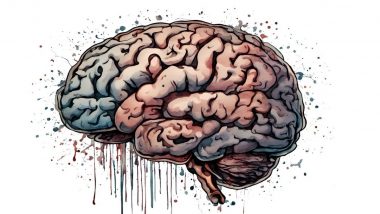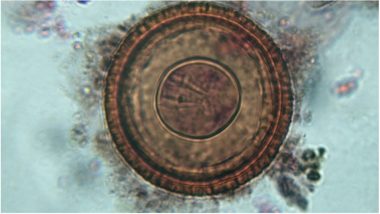Neurocysticercosis is a parasitic infection of the brain caused by the larvae of the pork tapeworm, Taenia solium. This condition is prevalent in regions where infected pigs are raised and sanitation is poor. Neurocysticercosis can lead to severe neurological symptoms and even death if left untreated. Understanding the causes, symptoms, and treatment options for neurocysticercosis is crucial for early diagnosis and effective management.
Causes of Neurocysticercosis
Neurocysticercosis occurs when a person ingests the eggs of the pork tapeworm, typically through contaminated food or water. Once ingested, the eggs hatch in the intestines and the larvae migrate to various tissues in the body, including the brain. In the brain, the larvae form cysts, which can lead to inflammation and neurological symptoms.
Symptoms of Neurocysticercosis
The symptoms of neurocysticercosis can vary depending on the location and number of cysts in the brain. Common symptoms include headaches, seizures, nausea, vomiting, and neurological deficits such as weakness or sensory disturbances. In severe cases, neurocysticercosis can cause hydrocephalus (buildup of fluid in the brain), meningitis (inflammation of the membranes surrounding the brain and spinal cord), and even death. Dead Worm Found in Brain of US Presidential Candidate: Robert F Kennedy Jr Says 'Worm Ate Portion of My Brain and Then Died'.
Diagnosis of Neurocysticercosis
Diagnosing neurocysticercosis can be challenging, as the symptoms are nonspecific and can mimic other neurological conditions. Imaging studies such as CT scans or MRI scans are often used to visualize the cysts in the brain. Blood tests and serological tests can also help confirm the diagnosis by detecting antibodies against the pork tapeworm.
Treatment of Neurocysticercosis
Treatment for neurocysticercosis typically involves a combination of medications to kill the parasites and reduce inflammation. Antiparasitic drugs such as albendazole or praziquantel are often used to kill the larvae, while corticosteroids are used to reduce inflammation in the brain. In some cases, surgery may be necessary to remove large or obstructive cysts.
Prevention of Neurocysticercosis
Preventing neurocysticercosis involves practising good hygiene and avoiding the consumption of contaminated food or water. Proper sanitation and cooking pork thoroughly can help prevent the spread of the pork tapeworm. Additionally, educating communities about the risks of neurocysticercosis and the importance of seeking treatment can help reduce the burden of this disease.
Neurocysticercosis is a serious parasitic infection of the brain that can lead to severe neurological symptoms if not diagnosed and treated promptly. Understanding the causes, symptoms, and treatment options for neurocysticercosis is crucial for early diagnosis and effective management of this condition.
(This article is written for an informative purpose and should not be substituted for medical advice. Kindly consult your doctor before trying any tips.)
(The above story first appeared on LatestLY on May 12, 2024 12:05 PM IST. For more news and updates on politics, world, sports, entertainment and lifestyle, log on to our website latestly.com).













 Quickly
Quickly




















